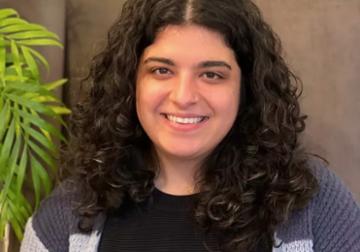It's a long-held truth that access to mental health services is paramount for a healthy community.
Thanks to the work of the Government Relations Committee for the Pennsylvania Counseling
Association, Pennsylvanians now have better access to mental health care—and Duquesne
counseling students can start practicing with increased compensation opportunities
sooner to help fill the gap.
Pennsylvania’s Act 76, passed in 1987, required new graduates of counseling programs
to complete 3,000 supervised hours before they could hold a state-issued professional
license to work as professional counselors. A related Pennsylvania insurance law (Title
40) states that these providers could not bill insurance companies for their services.
This meant that new graduates were unable to receive insurance-based payment for their
work for a significant window of time—sometimes years—until their requirements were
met. This also meant that many consumers of counseling services could not use their
health insurance benefits to pay for critical mental health care.
While insurance companies made concessions regarding Title 40 during the COVID-19
pandemic to allow Pennsylvanians to obtain mental health care, in January 2024, insurers
began to uphold the insurance law and deny reimbursement to counselors who were working
toward their 3,000 supervised hours for full licensure as professional counselors.
As a result, fewer counselors were able to accept insurance for their services, which
significantly limited income for new counseling graduates. Additionally, clients experienced
difficulty finding a counselor, and some existing clients had to discontinue care
because they could no longer use their insurance benefits.
Luckily, new Pennsylvania legislation (Act 4 of 2024) amends the current professional
counseling law and allows new graduates to apply for a first-tier counseling license—the
Associate Professional Counselor license (LAPC). This license allows qualified graduates
to test and apply for licensure immediately after graduation.
The LAPC enables new counselors to receive compensation from insurers for their work
while also allowing clients to use their insurance benefits for mental health care.
Those who hold the new LAPC are expected to work for their required 3,000 supervised
hours toward full and independent licensure as a Licensed Professional Counselor (LPC)
in Pennsylvania.
The new LAPC is expected to increase access to care across Pennsylvania while providing
recent, qualified counseling graduates with the opportunity to begin their career
and receive compensation upon graduation instead of upon completion of supervised
hours.
The Government Relations Committee for the Pennsylvania Counseling Association worked
tirelessly to become a trusted partner of Pennsylvania’s counselors and legislators
to address this systemic challenge.
Together, the team drafted language to create Act 4 and developed talking points for
legislators and their staff. Between November 2023 and March 2024, the law was introduced,
passed, signed by the governor and implemented. The professional counseling licensure
board is now accepting applications and providing first-tier, LAPC licenses to new
counselors.
Duquesne counseling students—and counseling students across Pennsylvania—recognize
they have a brighter future, more open doors and better job prospects, as they know
they’ll be able to receive compensation for their services sooner with the removal
of previous restrictions.

“We were in our journey of becoming early-career professionals, gaining clinical experience
required for our licensure, which takes approximately two years,” she said. “But then
we were hit with insurances pulling out, and we were left with a decrease in continuity
of care and a deficit to clients who no longer had access to mental health care.”
Edisa’s classmate Elena Shahen also works in private practice, and she looks forward
to helping more individuals through Act 4.

“When insurance companies started abiding by Title 40, some of the clients I had been
seeing for more than a year were not able to make it work without insurance, and we
don't want to add even more stress and burden on their mental health and wellness
by changing the pay structure,” she said. “With an associate license, now I can offer
even more to many clients, and they have less of a financial burden.”
News Information


